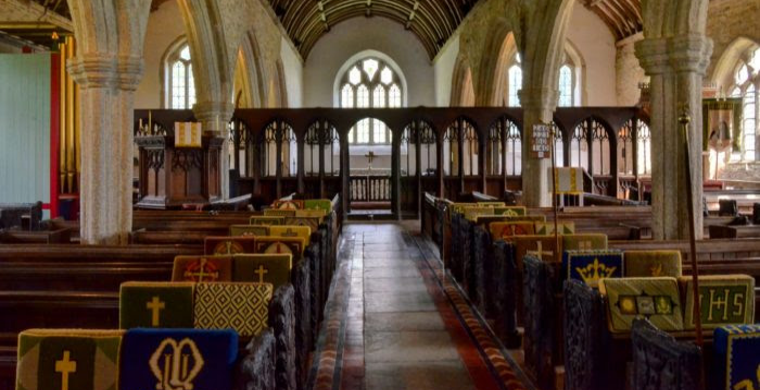"Is Church History?" -- The Church of England Might Be
BENJAMIN SAINE
JUICY ECUMENISM
https://juicyecumenism.com/2019/09/10/church-history-church-england-might/
Sept. 10, 2019
Church attendance and engagement declined precipitously across the past half-century, and there are few places where this is more apparent than in the Church of England. A study done last year reports that only 2% of young adults in the United Kingdom identify with the official state church. This important dilemma facing the church was brought up at this year's Greenbelt Festival in a panel discussion titled: "Is Church History?"
Greenbelt is a prominent liberal Christian event that began as a music festival in 1974 and has since morphed into an all-inclusive festival of faith, art, and music. Most of the talks at Greenbelt focus on the role of the church in modern society and how it should act.
The panel "Is Church History?" featured Martin Wroe, co-author of Lifelines, Notes on Life & Love, and Faith and Doubt; the Rev. Liz Adekunle, Archdeacon of Hackney; the Rt. Rev. Stephen Cottrell, Bishop of Chelmsford; and the Rev. Kate Bottley, an English journalist and priest nicknamed "Bishop of the Telly" for her frequent appearances on British radio and television. The talk itself focused on the numbers and community.
When talking about the numbers, panelists agreed that the outlook for the Church is bleak. While news reports from 2018 showed that 2% of British young adults identified with the Church of England, the panelists seemed to be referencing a different study which showed that only 1% of young adults identified with the Church of England.
Cottrell cast doubt on the numbers broadly speaking, "If all you do is count numbers and that becomes the only criteria by which you judge the impact and fruitfulness of the church, then we have to concede that we have many problems and challenges... my prayer for the church is, 'Teach me to measure my impact in something other than numbers.'" While this is certainly a nice and in some ways true sentiment, it does little to help when the numbers are extremely low.
Panelists asked why the numbers were so bad, with many agreeing that a pressing issue was a lack of engagement.
"No one gets out of bed in the morning for the Church of England," Cottrell insisted. While somewhat hyperbolic, the bishop spoke to a real lack of engagement with congregations and the community on the part of the church. This lack of engagement with the community was a major focus of the talk.
Throughout the panel discussion the panelists spoke highly of outreach to the community by members of the Church of England. Adekunle talked about a bishop who opened his house for dinner to anyone who passed by. A member of the audience shared her story about a church-run homeless shelter and how that effort has positively impacted the community. However, these community-focused initiatives were too often for their own sake and not included in a larger evangelistic initiative.
There was also apologetic talk about inclusiveness and whether the Church of England was as inclusive as it should be. Bottley asked a rhetorical question, "Why would I want to go to a place that is institutionally homophobic and non-inclusive?" Some audience members shared stories of either themselves or their friends and family being excluded from church functions on account of their sexuality or gender identity.
Has the Church of England gone too far in its attempts to demonstrate Christian love through inclusivity? "Hate the sin, but love the sinner" is a popular refrain regarding acceptance of sinners within the Church. One cannot be condemned for assuming that the Church of England has thrown out the entire doctrine of sanctification in its search for relevance and inclusiveness. An oft-repeated point was that God made you and therefore loves you "just the way you are." But this is incorrect. God made you to be conformed to the image of his son, Jesus Christ, and though he loves you unconditionally, he is not content to see you wallow in your sins forever.
Decline in Church of England membership should be no surprise; church membership has been dropping across the West for decades. However, the Church of England could learn some important lessons from other Protestant denominations in the United States. All denominations which exhibit sustained growth are traditionalist, while all liberal Protestant denominations are declining.
Community-based evangelism is a perfectly good way to grow a church, but a focus on community engagement for its own sake and inclusiveness does not increase attendance or engagement, as proven by liberal denominations in the United States. The Church of England has been in decline for years, and the recommendations made at the Greenbelt panel are not going to reverse this trend.
END














